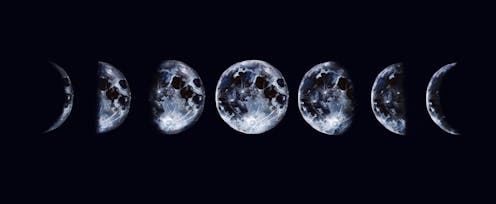Let's choose our words more carefully when discussing mātauranga Māori and science
- Written by Emily Parke, Senior Lecturer in Philosophy, University of Auckland

Responding to the recent controversy[1] over mātauranga Māori[2] and the letter he co-authored titled “In defence of science”, Emeritus Professor Michael Corballis said[3]: “We don’t know any Māori who knows what mātauranga is.”
This immediately made us wonder: what would happen if we asked a group of scientists what science is?
Common responses to the question “what is science?” focus on causal explanations, controlled experiments, hypothesis testing or falsification[4] (those are popular options, not an exhaustive list).
All point to important aspects of science, and all have been proposed as ways of defining it. But there is no single answer to the question “what is science?”.
This doesn’t mean people can characterise science however they want. Far from it. Our point, instead, is that questions like “what is science?” or “is mātauranga science?” could be asking about any number of different ideas.
Ambiguous statements are poor starting points for careful, constructive debates. We see people talking past each other in discussions of mātauranga and science. These discussions could benefit from more careful articulation of the concepts at stake. We’ll start with science.
What is science?
When we ask what something is, we often seek a definition of that thing. But whereas some concepts are pretty easily defined (electron, uncle), some aren’t (art, life, science).
When we ask a question about a hard-to-define concept – “what is art?[5]” or “what is life[6]?” – dictionary definitions aren’t much use, because what we are after is an understanding of the range of conceptual work the term does for us.
So, when we ask “what is science?”, what are we asking? One way to answer is to list methodologies that many or most scientists use, such as testing hypotheses, conducting controlled experiments or gathering empirical evidence.
Another way to answer is to point to a list of goals and values – yes, despite the myth of a value-free ideal[7], values are part of science – that many or most scientists strive for. These include reproducibility, empirical accuracy or reliable causal knowledge of how the world works.
Yet another approach shifts away from listing science’s characteristic hallmarks and points to its status. Here, we might answer the question “what is science?” by saying something like, “science represents our best empirical knowledge of how the natural world works”.
The many faces of science
Any of those answers can be framed generically. We can talk about science universally: as a set of methodologies anyone can employ, values anyone can strive for, or status any body of knowledge can achieve, at a given time, in a given domain.
We can also talk about science in a specific way: as a modern institution housed in universities, companies and NGOs. We can talk about the history and culture of this institution: it traces back to the Enlightenment and to earlier times and places, and it is funded by governments and industry and rich donors.
We can talk about things this institution, or particular people involved in it, have done throughout its history: discovered antiseptics and subatomic particles and the structure of DNA, exploited indigenous peoples around the world in the name of research, come together globally to develop COVID vaccines in under a year.
We see all the above understandings of science — methodological, epistemic, status-based, universal and specific — on display, and often run together, in the recent debate about mātauranga and science. And that’s not even an exhaustive list of ways to address the question “what is science?”.
Slow down, show respect
Mātauranga[8] spans Māori knowledge, culture, values and worldview. When someone asks, “is mātauranga science?”, there is a range of things they could really be asking about, including:
does mātauranga (or do forms of it) use scientific methodologies to generate knowledge[9]?
do we value mātauranga as a valid way of knowing about the world alongside science?
how should we uphold this value in a way that respects intersections and differences?
should relevant content from mātauranga be taught in science classrooms?
These questions and others are (at a bare minimum) starting points for more productive discussions than “is mātauranga science?” There is nothing constructive to be gained by framing those questions in ambiguous definitional terms.
In closing, we note the question “what is philosophy?” has no clear and easy answer, either! A favourite quotation about philosophy says it is “thinking in slow motion”. More of that would be welcome in the current discussion.
In practice, that will mean striving to avoid ambiguity in everything we say, pausing with respect to consider our audience’s point of view — and choosing our words carefully.
References
- ^ recent controversy (www.nzherald.co.nz)
- ^ mātauranga Māori (www.tandfonline.com)
- ^ Michael Corballis said (www.newshub.co.nz)
- ^ falsification (plato.stanford.edu)
- ^ what is art? (plato.stanford.edu)
- ^ what is life (www.quantamagazine.org)
- ^ despite the myth of a value-free ideal (plato.stanford.edu)
- ^ Mātauranga (www.tandfonline.com)
- ^ generate knowledge (scientists.org.nz)
















